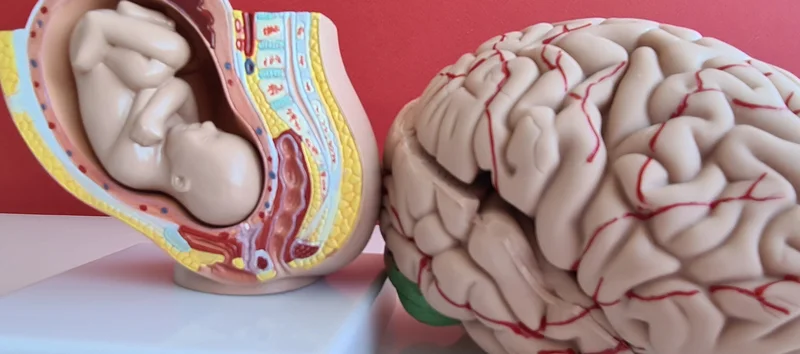Is Alcoholism Genetic? Understanding the Genetics of Alcoholism 23andMe Blog

The analysis revealed no significant association between the studied SNPs and Jordanian-addicted participants. One problem with the case-control design is that genotype and haplotype frequencies vary between ethnic or geographic populations. Suppose the case and control populations must be better matched for ethnicity or geographic origin. Combinations of polymorphisms in genes involved in both stages of drug metabolism may also interact to affect substance abuse-related behavior. Therefore, it is essential to replicate these results in larger samples and different populations.
- In this study, the result of the association study was presented between 20 variants of two candidate genes (ADH5 and ALDH1A1) and substance abuse in the Jordanian population.
- This means that individuals with a family history of alcoholism may have an increased risk of developing alcoholism themselves.
- Females, in particular, are more susceptible to alcohol-induced liver damage due to differences in alcohol metabolism and body composition.
- GWAS arebeginning to yield robust findings, although the experience in many diseases isthat very large numbers of subjects will be needed.
Hardy-Weinberg Test for Selected SNPs
Studies have identified several genes that may contribute to the genetic predisposition to alcoholism. One such gene is the dopamine receptor gene, which plays a role in the brain’s reward pathway. Variations in this gene have been found to affect an individual’s response to alcohol, making them more or less likely to become addicted. Innovative statistical approaches are being pioneered to make biological sense out of GWAS data.
Lifestyle Changes for Individuals with Genetic Predisposition
Other environmental and lifestyle factors also contribute to the development of the disease. Instead, it is considered a multifactorial disorder, meaning that both genetic and environmental factors contribute to its development. If there’s a history of alcoholism in the family, you have a higher risk of developing AUD. However, knowing your family history of addiction shouldn’t make you feel hopeless, as if you’re bound to the same fate. Research has illuminated that genetics is a significant factor in the risk of developing Alcohol Use Disorder (AUD), but it’s not the only Sober living house one.

Is Alcoholism Genetic? Understanding the Genetics of Alcoholism
Inherited traits or predispositions are transmitted specifically through familial lineage. Identical twins, who share all their DNA, consistently show higher rates for is alcoholism genetic AUD, underscoring the significant role of genetics. However, it can be important to understand how a shared environment might also influence these rates (3). This is an illustration of an Illumina GoldenGate array that was custom designed to include 1350 haplotype tagging single nucleotide polymorphisms (SNPs) within 127 stress- and addictions-related genes.

This support can include counseling, therapy, and support groups that address the genetic risk and provide strategies for managing it. Advancements in genetic research have allowed scientists to identify specific genes that may contribute to the development of alcoholism. These genes are often related to the metabolism of alcohol and the brain’s reward system. Understanding the role of these genes can provide valuable insights into the underlying mechanisms of the disease and potential targets for treatment.
- Understanding the interaction between genes and the environment is key to unraveling the complexities of alcoholism and developing effective prevention and treatment strategies.
- By understanding an individual’s genetic predisposition to certain side effects, doctors can adjust the medication dosage or choose a different medication altogether to ensure the safety and well-being of the patient.
- Alcoholism is a complex disease that is influenced by both genetic and environmental factors.
- A subsequent COGA scan found strong linkage of resting EEG beta power, an intermediate phenotype for alcoholism, to the same chromosome 4 region 43.
- Researchers have found that certain genetic mutations can lead the body to break down alcohol faster, resulting in increased levels of acetaldehyde.
The GABA Receptor Gene and Alcoholism
Pharmacogenetic testing can identify genetic markers that indicate whether a particular medication will be effective for an individual. While there are environmental and social factors that influence the risk for alcoholism, there is also a genetic component. Recent research from Indiana University has shed light on the significant role genes play in the development of alcohol use disorders (AUDs). Understanding your family history is a powerful tool, but it’s just one piece of the puzzle. By making informed choices and creating a supportive environment, you can take control of your relationship with alcohol.

The DRD2 gene was the first candidate gene that showed promise of an association with alcoholism. Epidemiological studies have shown that alcohol is causally linked to cancer of the oral cavity, throat, voice box, esophagus, liver, colon and rectum, and breast. Another study reported an association between chronic and binge drinking and pancreatic cancer. The ALDH gene, also known as aldehyde dehydrogenase, plays a crucial role in alcohol metabolism in the body. It is responsible for breaking down acetaldehyde, a toxic byproduct of alcohol metabolism, into acetate, which can be further metabolized and removed from the body. Beyond that, Palmer and his team want to develop a better understand of how the genes they’ve identified might influence these traits, but using animal and cellular models.
Svi komentari (0)
Nema komentara za prikaz

Dodaj komentar